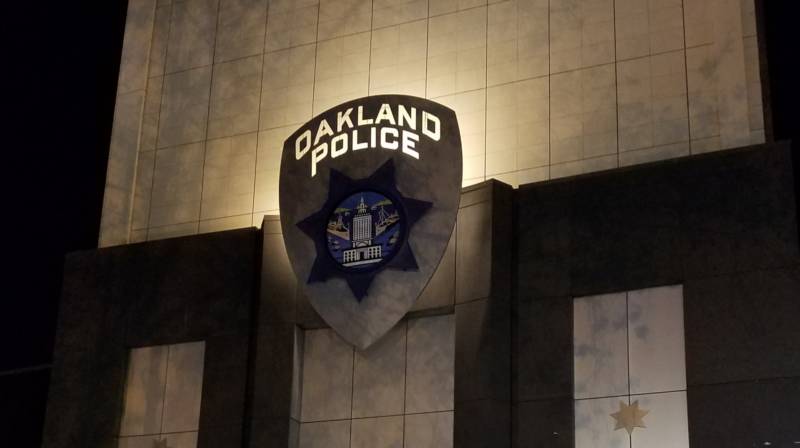“There was no information that Mr. Pawlik was an immediate threat to anyone or had harmed anyone at that point," he wrote. "There were no citizens in immediate danger."
Pawlik was lying unconscious between two North Oakland homes, with a gun nearby, when eight officers arrived and parked an armored vehicle on the street. Video footage released by OPD shows Pawlik waking up; officers can be heard repeatedly telling him not to move and to keep his hands away from the gun. Four officers, who later told investigators that Pawlik raised his arm and aimed the gun at them, fired 22 shots, killing the mentally ill man. Pawlik's mother recently filed a federal wrongful death suit over the killing of her son.
OPD said it plans to release additional records about the officers' actions in the shooting. But the documents released Wednesday already lay bare Warshaw's displeasure about internal affairs investigators failure to challenge officer statements he said were contradicted by video footage.
“I reject the chief’s principal conclusions in this matter,” Warshaw bluntly concluded in an internal letter dated Feb. 19.
In his review of the shooting, Warshaw’s conclusions were at odds with Kirkpatrick’s. For instance, the chief exonerated Officer Craig Tanaka, one of the four officers who fired at Pawlik. Warshaw, however, recommended a Level 1 use of force violation — the highest there is — against Tanaka, two other officers and Sgt. Francisco Negrete. In Negrete’s case, Kirkpatrick downgraded discipline recommended by her own commanders, the Executive Force Review Board.
James Chanin, an Oakland civil rights attorney involved in monitoring of the department, said late Wednesday that Kirkpatrick's decisions were troubling.
Negrete "was showing no leadership whatsoever" at the scene, Chanin said. "And the chief downgraded (his) discipline from even what the department’s own investigation recommended. The department does not seriously consider disciplining supervisors."
A spokeswoman for Kirkpatrick, Officer Johnna Watson, declined to comment Wednesday.
Documents show Kirkpatrick downgraded other recommended discipline for some of the involved officers, writing in her own report that she disagreed.
“The evidence does not contradict the officers’ statements that they fired only after perceiving a lethal threat, when Pawlik raised his arm and pointed the gun in their direction,” Kirkpatrick wrote.
Kirkpatrick also determined that Negrete showed “errors in judgment and action ... with the lives of both Mr. Pawlik and others at stake.” But, she wrote, he did not carelessly or recklessly disregard the safety of others, the standard required for the most serious level of discipline.
“Instead, there is evidence of his desire to resolve the situation without harm to anyone, including Mr. Pawlik," Kirkpatrick wrote about Negrete.
Warshaw wrote that he agreed with the department's review board finding that Negrete's "conduct constituted gross dereliction of duty." Negrete "fired his own rifle even though he had designated two officers with rifles as primary cover officers."
Negrete "assumed the role of both team leader" and the officer designated to handcuff Pawlik if he surrendered, Warshaw wrote. That "divided his attention and did not allow him to effectively supervise the team.”
Warshaw also wrote that two divisions of OPD that investigated the shooting ignored a key piece of evidence: body-camera footage from a sergeant “who had the foresight to place his camera on the armored vehicle,” allowing for an “unobstructed view.” Warshaw wrote that the video contradicted assertions made by officers, and he accused investigators of using leading questions to justify the shooting.
In her review of the fatal shooting, Alameda County District Attorney Nancy O’Malley concluded the evidence did not support criminal charges against the four officers who shot at Pawlik. Chanin questioned the timing of O’Malley's report, which was released on the same day as the Oakland Police Department released a portion of its records in the case.
“She supported the city down the line,” Chanin said. “It’s hard for me to believe that there wasn’t some orchestration involved here. I think that is a very sad development for the city.”
Oakland is the first large Bay Area department to release records previously protected under old state law. In San Francisco, the police officers union is suing the city to block disclosure.
San Jose has released brief, summary information but is declining to provide anything further, citing state Attorney General Xavier Becerra's decision not to release disciplinary records about California Department of Justice agents until legal battles over the new law are resolved.

